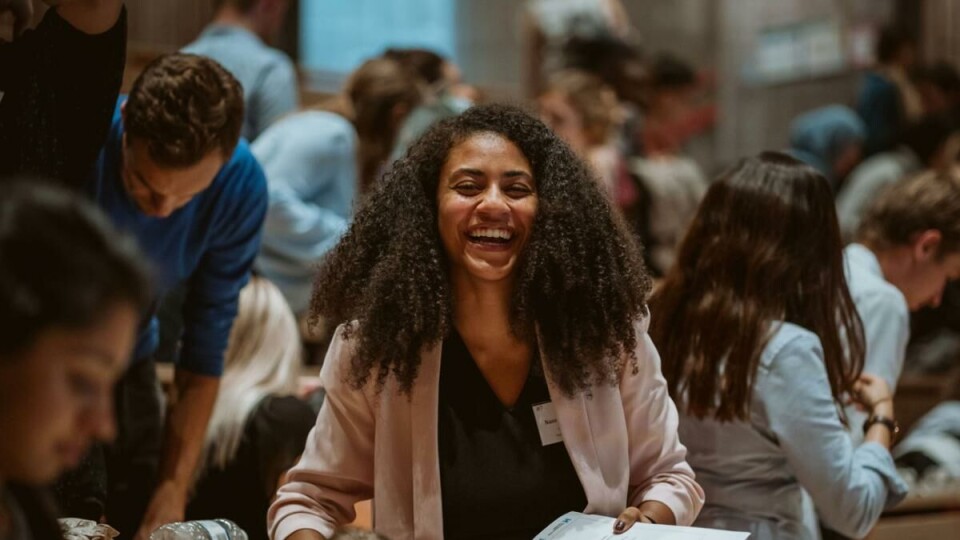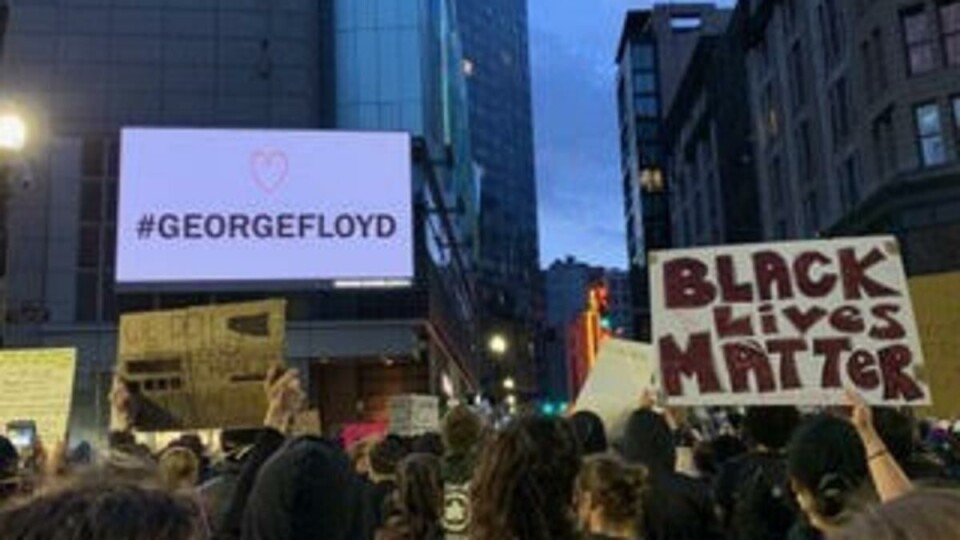
Celebrating the American Black History Month in Norway
What do Americans think about Black History Month, and how have they celebrated it while in Norway? Inter Universitas has asked American professors and students residing in Oslo.
To say that the past twelve months have been a turbulent chapter in US history would be an understatement. Within less than a year, the country witnessed the outbreak of a pandemic which has caused the death of over 500.000 US citizens, with Black Americans dying of Covid-19 at three times the rate of White Americans. The brutal murder of George Floyd in May 2020 sparked huge protests in the country, and the entire world was holding its breath during the events of the U.S. presidential elections in November.
Amid all these events, the first of February marked the beginning of the annual «Black History Month», inviting Americans to «honour the history and achievements of Black Americans and to reflect on the centuries of struggle that have brought us to this time of reckoning, redemption, and hope», as Joe Biden puts it in his statement.
But what do Americans think about Black History Month, and what has changed through the Black Lives Matter movement? Do they still celebrate Black History Month despite living abroad? To answer these questions for you, we have interviewed students and professors that are based in Oslo, or have worked in Norway for a while.
The story behind Black History Month
Have you ever wondered why Black History Month is celebrated in February? According to Michelle A. Tisdel, Research Librarian at the National Library of Norway, its original concept was developed by Carter G. Woodson in 1926 to highlight the contributions of two men to African-American history. The second week of February was chosen as it was a week of significance for African Americans: it included the birthdays of both Abraham Lincoln, who signed the Emancipation Proclamation, and the abolitionist and former slave Frederick Douglass.
In a time where everyday life in the US was marked by segregation, structural racism and physical violence against People of Colour, the so-called «Negro History Week» was a «self-empowerment project»: the idea was that through learning about their history, African American communities would build a sense of pride and see themselves as valuable contributors to US society.
In the 1970s, the «Black United Students» Association at Kent State University proposed the name «Black History Month», and several years later Black History Month was being celebrated in educational institutions and community centres across the country.
Tisdel argues that although much has changed for the better over the past 50 years, the need for Black History Month is still there: the structural inequality which disproportionally affects African American communities, as well as racist attitudes, are still present today. However, she highlights an important difference:
– There is still a need for awareness-raising and competence building in the US, but what is different today is the audience: Black History Month no longer targets only the African American communities, but the wider society in general, Tisdel says.
— The problem of structural inequality is the problem of society in general, with people contributing to the practices that uphold inequality, either intentionally or unintentionally.
Tisdel also highlights that to really promote self-empowerment and self-reliance among disadvantaged communities, companies would have to go much further by investing in social entrepreneurship and programs which directly benefit African Americans.
An accurate or white-washed depiction of US history?
Several of the people Universitas interviewed described how they feel that Black History Month had been hijacked by other interests, «whitewashing» the celebration of Black History Month by downplaying the history of slavery or focusing only on a few selected figures such as Martin Luther King.
One of them is Camilla Brooks, who studies a master's program in International Special Needs Education at UiO and grew up in a small, conservative town in Washington state. She describes her memories of Black History Month at her elementary school:

– I remember that the few students of colour would always have to perform Martin Luther King Jr.’s famous speech «I have a dream» in front of the whole school. Celebrating Black History Month meant to hear very simplified versions of history such as Jackie Robinson [a famous baseball player] was allowed to play because he was so amazing”, amplifying the histories of a few African Americans such as Martin Luther King Jr. while neglecting the structures of racial injustice that were – and to some extent still are - ruling society at that time.
In Brooks’ eyes, what matters is «doing the work» throughout the year by engaging in critical conversations and reflecting on one’s own privileges, learning about African American history and surrounding oneself with people from different backgrounds:
– Of course, I understand the value of celebrating Black History Month. However, February is only one month. Why should we only focus on Black History for such a limited time? Black History is US history, it should be celebrated consistently.
In her eyes, the Black Lives Matter movement has been very successful in putting the social responsibility of «doing the work» on individuals, getting more and more people involved both on social media and offline. She emphasises that within the educational context, the representation of different viewpoints, and the inclusion of Black and indigenous authors in the education curriculum, is crucial.
She explains that she tried to «take» Black History Month with her by using books with Black kids as main characters and including authors with different backgrounds in her work as educator at an international school. When asking her about the ways in which she celebrates Black History Month here in Norway, Brooks replies that she listens to podcasts such as «The Reed» or reads books created by Black and indigenous authors throughout the year, rather than only in February.
Brooks’ experience of a «whitewashed» Black History Month at school is echoed by Jake Ference (22), who studies a master’s in social Anthropology at UiO. While Ference's schoolteachers would address certain topics such as the Civil Rights Movement, the White community in general would not address Black History Month at all. According to Ference this has changed considerably over the past years, turning Black History Month into a time where prevailing injustice, police brutality and advocacy for the African community are strongly put into the focus of the public.
However, Ference also describes a flipside in the increasing popularity of Black History Month: many businesses use PR-campaigns during Black History Month to stay in the good favour of consumers and to engage the increasingly important African American consumer market – a point that Michelle Tisdel had raised as well.

Even if Black History Month is not the abolition of the criminal injustice system that prevails in the U.S., we should not ignore that it results in solutions that make the lives of people better.
Naomi Kellogg, English teacher in Norway.
Why Black History Month matters after all
Naomi Kellogg, who worked as an English teacher in Norway and is currently completing her master’s in Global Development Studies at the University of Copenhagen, describes her relationship to Black History Month as complicated. She describes her view pragmatically:
– I don’t think that any African American in the US thinks that Black History Month is the saving grace to racism in the US. However, if you take it for what it is, namely an opportunity to bring Black voices to the forefront in a system that consistently insists on silencing the voices of African Americans, it is easier to not be disappointed, she says before adding:
— In this sense, Black History Month in the US is extremely important, because it forces our society every year to be confronted with the injustices that are still happening. It gives a window for politicians who normally may not have the political guts to support the Black community.
In her opinion, the instrumentalization of Black History Month in PR-campaigns is not necessarily a sign of success or failure, as enterprises use any opportunity to maximise their profit. Rather, it is important not to overlook that programs, projects and political initiatives that are put forward during Black History Month do have a positive impact on African American communities, whether that may be an open recognition of the plight of African Americans or funding for Black initiatives, such as extra grants for Black-owned businesses.
– Growing up in a small town in the middle of Kentucky, Black History Month was the one month of the year where I learned about people that looked like me. And this could not be taken away from the few of us that were there, however tokenized it was, Kellogg says.
— Whenever it was Black History Month, it was time to learn about our story, and how our ancestors were weaved into the history of the nation. It was those twelve months throughout the entire history of my education where I was introduced to my ancestry and Black scholars, which has been incredibly important for my personal development.
For her, each Black History Month is also a time she uses to re-centre herself around Black authors, re-reading classics by Audrey Lorde and Angela Y. Davis and emerging herself into new books of her favourite authors. This year, she is reading the new book «Freedom is a Constant Struggle» by Angela Y. Davis, a collection of essays, interviews, and speeches that illuminate the connections between struggles against state violence and oppression throughout history and around the world.
– Even if Black History Month is not the abolition of the criminal injustice system that prevails in the U.S., we should not ignore that it results in solutions that make the lives of people better. It is an important recognition in a society that systematically insists upon acting like racism doesn’t exist, Kellogg concludes.
































